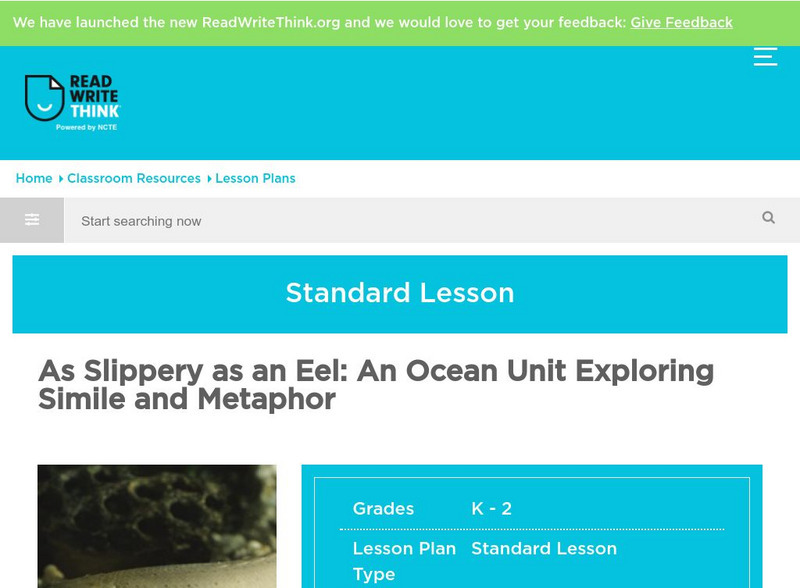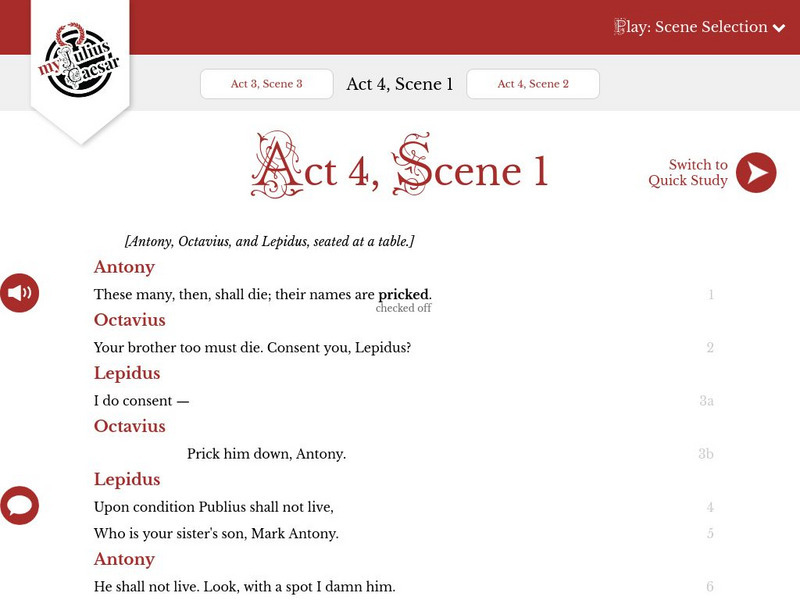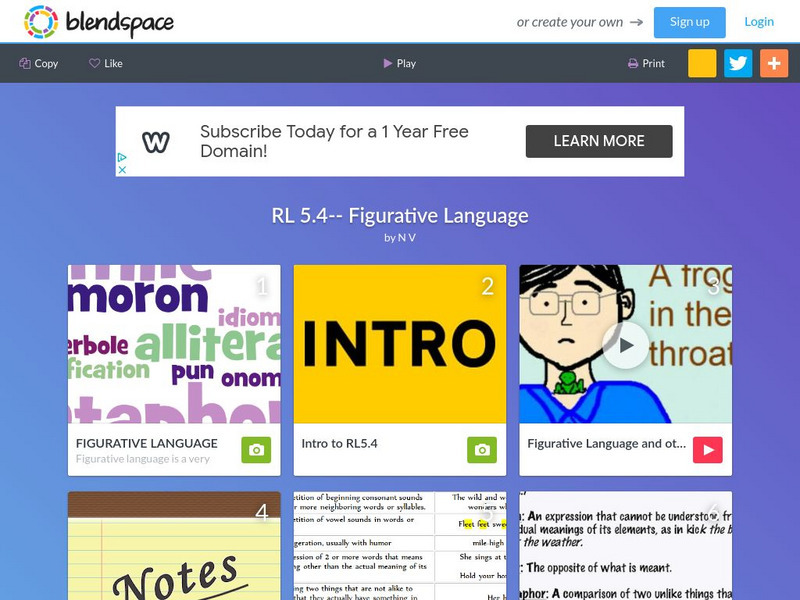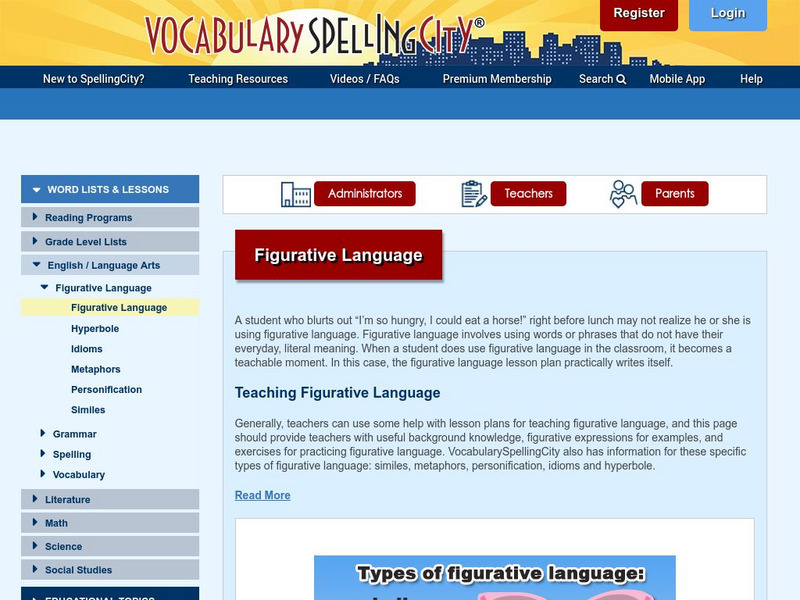ReadWriteThink
Read Write Think: An Ocean Unit Exploring Simile and Metaphor
Contains plans for four lessons that teach learners about similes and metaphors using ocean themed resources. In addition to objectives and standards, this instructional plan contains links to sites used in the lessons as well as...
Read Works
Read Works: 4th Grade Lesson: Similes and Metaphors
[Free Registration/Login Required] A lesson in which students use the book Poetry for Young People: Langston Hughes edited by David Roessel and Arnold Rampersad to learn to identify and understand the use of simile and metaphor in...
Lumen Learning
Lumen: Boundless Communications: Deploying Style Effectively
This lesson focuses on rhetorical devices and how to use them effectively in public speaking. These include alliteration, antithesis, hyperbole, onomatopoeia, personification, repetition and parallelism, and simile and metaphor.
Alabama Learning Exchange
Alex: Poetry and Music Fun With Chris Daughtry
This language arts lesson grabs students' attention by incorporating a popular musician. The lyrics to "Over You" include vivid language that makes identifying figures of speech intriguing. The students will identify similes, metaphors,...
Other
Paradigm Education: My Shakespeare: Julius Caesar, Act 4, Scene 1
The text of Act IV of The Tragedy of Julius Caesar, accompanied by audio narration. Be sure to advance to scenes 2 and 3 (or to other acts of the play) using the buttons at the top. Includes audio narration, performance clips, discussion...
E Reading Worksheets
E Reading Worksheets: Figurative Language Worksheets
This learning module provides remediation and extra practice with identifying different types of figurative language. Reinforcement is provided through the worksheets, quizzes, video game links, and online sites for the following types...
Annenberg Foundation
Annenberg Learner: Journey North: Reading Strategies: Compare and Contrast Ideas
This reading resource discusses the strategy of comparing and contrasting ideas. Students will learn definitions and explanations for similes, metaphors, and analogies. A list of guiding questions is provided to help students as they...
Other
Centre for Literacy in Primary Education: Poetryline: Poetic Forms and Devices
An excellent resource for learning about the different forms and devices used in poetry. Each item is linked to its own page which has examples of its use. Many of the pages have videos of authors reading their poems, and some have...
TES Global
Blendspace: Rl 5.4 Figurative Language
This twelve-part learning module provides assorted references for figurative language terms. This blendspace provides reproducible charts, flash cards, a game, video tutorial lessons, and rap songs. L.9-10.5 Fig Lang/nuances
E Reading Worksheets
E Reading Worksheets: Figurative Language Activities
Numerous activities, games, quizzes, lessons, and PowerPoint presentations are provided for the topic of "figurative language" in writing. Students will have numerous exposures to examples. Students will also be able to practice...
Other
Fu Jen Univ.: Poetic Elements: Denotation and Connotation: Figures of Speech
This site gives short definitions of the terms denotation and connotation. Also gives definitions for many figures of speech. Finally, includes discussion and study questions for a few poems at the bottom of the page. L.11-12.5b Nuance
Vocabulary Spelling City
Spelling City: Figurative Language
This website focuses on figurative language: hyperbole, simile, metaphor, personification, and idioms. It provides lists of examples for each based on three educational levels: elementary, middle school, and high school.









